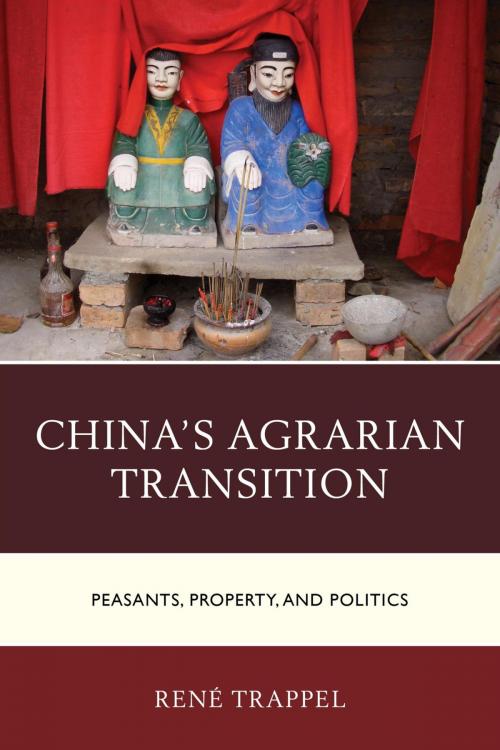China's Agrarian Transition
Peasants, Property, and Politics
Nonfiction, History, Asian, China, Social & Cultural Studies, Political Science, International| Author: | René Trappel | ISBN: | 9780739199374 |
| Publisher: | Lexington Books | Publication: | December 18, 2015 |
| Imprint: | Lexington Books | Language: | English |
| Author: | René Trappel |
| ISBN: | 9780739199374 |
| Publisher: | Lexington Books |
| Publication: | December 18, 2015 |
| Imprint: | Lexington Books |
| Language: | English |
More than thirty years ago the political turn that brought the dismantling of agricultural collectives and exclusive rights to small plots of farmland for rural families initiated a historic return to smallholding in the People’s Republic of China. Today, agriculture in China is changing again. In many villages smallholder farming is giving way to large agricultural enterprises. This book explores this latest transformation of Chinese agriculture. It traces how the peasantry’s frustration with the farming conditions, the priorities of national and local political agents and the changes in the management of collective land since the return to family-based farming have paved the way for a unique Chinese agrarian transition. The argument is based on careful analysis of agricultural politics since the early 1980s and data gathered in three field trips to Shandong, Sichuan, and Guizhou Provinces between 2008 and 2010. The findings highlight the importance of institutional path-dependencies and strategic government intervention (or its absence) for economic transformation. China’s Agrarian Transition is one of the first comprehensive accounts of the latest developments in agriculture in the People’s Republic and will provide a stimulating read for political scientists, sociologists, economists, and experts on China interested in the ongoing transformation of China’s countryside.
More than thirty years ago the political turn that brought the dismantling of agricultural collectives and exclusive rights to small plots of farmland for rural families initiated a historic return to smallholding in the People’s Republic of China. Today, agriculture in China is changing again. In many villages smallholder farming is giving way to large agricultural enterprises. This book explores this latest transformation of Chinese agriculture. It traces how the peasantry’s frustration with the farming conditions, the priorities of national and local political agents and the changes in the management of collective land since the return to family-based farming have paved the way for a unique Chinese agrarian transition. The argument is based on careful analysis of agricultural politics since the early 1980s and data gathered in three field trips to Shandong, Sichuan, and Guizhou Provinces between 2008 and 2010. The findings highlight the importance of institutional path-dependencies and strategic government intervention (or its absence) for economic transformation. China’s Agrarian Transition is one of the first comprehensive accounts of the latest developments in agriculture in the People’s Republic and will provide a stimulating read for political scientists, sociologists, economists, and experts on China interested in the ongoing transformation of China’s countryside.















